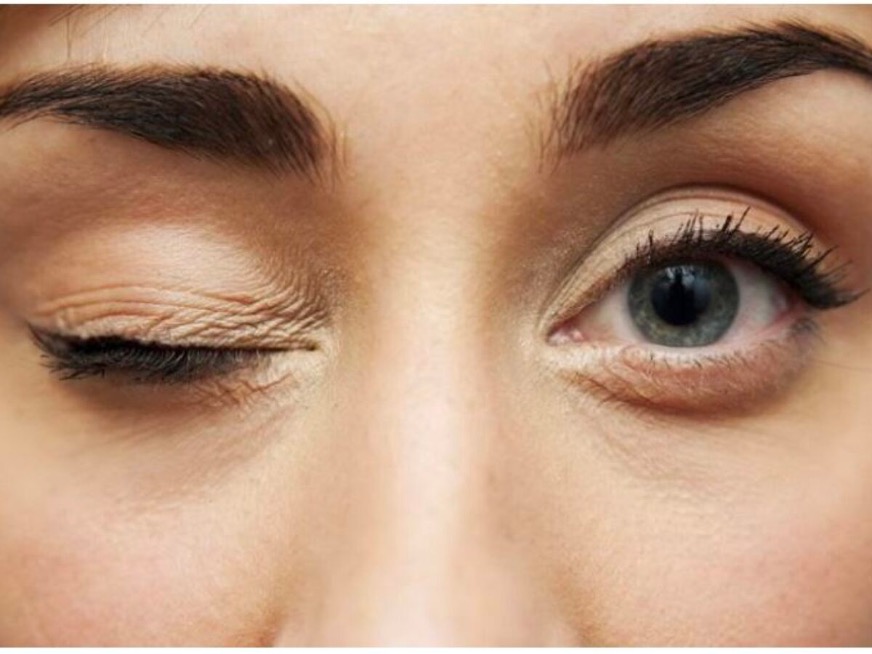Eye twitch
An eye twitch is a condition whereby the movement of your eye muscle or eyelid cannot be restrained. This eye condition usually happens more in your upper eyelid and your lid moves every few seconds typically for 1 to 2 minutes.
What kinds of eye twitching are there?
There are 3 types of eye twitching. The first type is called a minor eye twitch. This condition is usually associated with banal matters such as fatigue, stress or caffeine. When the cornea (transparent layer at the front of the eye) or the conjunctiva (membranes that line your eyelids) get irritated, your eye might also twitch slightly.

Benign essential blepharospasm is the second type of eyelid twitching that generally surfaces in mid to late adulthood and exacerbates as time goes on. This condition begins with eye irritation or non-stop blinking. As benign essential blepharospasm worsens, you may suffer from blurry vision, become more sensitive to light as well as get facial spasms. Sometimes, these spasms might become so intense that your eyelids have to remain shut for hours at a time. While benign essential blepharospasm is normally not a grave condition, more serious episodes might impact your everyday life.
The third type of eye twitching that is hemifacial spasm is very uncommon. Hemifacial spasm commonly impacts only one side of your face and entails your eyelid muscles and the muscles surrounding your mouth. This condition is generally due to an artery pressing on a facial nerve.
What are some of the causes of eye twitch?
Your eye might twitch because of an unusual signal in your brain or the muscles of your face. Banal activities and things that can cause eye twitching to entail:
- Fatigue
- Light sensitivity
- Caffeine
- Stress
- Alcohol
- Smoking
While fairly rare, certain disorders in the nervous system and the brain can lead to eye twitching. Some of these disorders are:
- Parkinson’s disease
- Bell’s palsy
- Brain damage
- Multiple sclerosis
- Tourette’s syndrome
- Dystonia
When should you see your doctor for eye twitching?
Your eye spasms might not simply last you for a couple of minutes. In fact, you might suffer from spasms all day, and for days, weeks or even months. These spasms, when prolonged and uncomfortable, can reduce the quality of your life and prevent you from concentrating on your everyday duties. If you have persistent eye twitching, your vision might suffer and you might have to squint or wink consistently. Consult your doctor when:
- Your twitch persists beyond a week
- Your eyelid shuts totally
- Your spasms affect other facial muscles
- Redness, swelling, or discharge in your eye or eyes develop
- You have a drooping upper eyelid
If your doctor thinks you might be having a more underlying serious condition such as a brain or nerve problem, you would be examined for other symptoms or would be referred to a neurologist (nerve specialist).
What treatments are available for eye twitching?
Get lots of rest and reduce your tobacco, alcohol, and caffeine intake if you have a minor eye twitch. Use eye drops to address irritated or dry eyes.
Although there is not any cure for benign essential blepharospasm, you can mitigate your symptoms with medications prescribed by your doctor. If it is severe or disrupting your daily activities, your doctor may recommend surgery like myectomy to remove some of the muscles and nerves around your eyelid. Surgery can also permanently ease the pressure of the artery on your facial nerve that causes a hemifacial spasm. That being said, bear in mind that as with any operation, surgery for your eyelids can carry risks.

Keen to learn more about your eye health and the available eye treatment options? Schedule a comprehensive eye check today at planoEyecheck!
References
WebMD. 2021. Eye Twitching. [online] Available at: <https://www.webmd.com/eye-health/why-your-eyes-twitch> [Accessed 28 December 2021].
Tools Designed for Healthier Eyes
Explore our specifically designed products and services backed by eye health professionals to help keep your children safe online and their eyes healthy.
